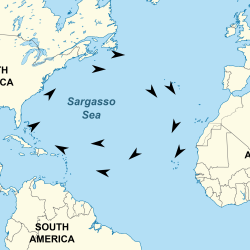Study Puts Some Mussels into Bay Restoration
Restoring oysters—and their ability to filter large volumes of water—is widely seen as a key way to improve the health of Chesapeake Bay. New research makes this calculus even more appealing, showing that the mussels that typically colonize the nooks and crannies of a restored oyster reef can more than double its overall filtration capacity.
 The study—by researchers at the University of Maryland, the Smithsonian Environmental Research Center and the Virginia Institute of Marine Science—appears as the cover story in the most recent issue of Restoration Ecology .
The study—by researchers at the University of Maryland, the Smithsonian Environmental Research Center and the Virginia Institute of Marine Science—appears as the cover story in the most recent issue of Restoration Ecology .
“Many efforts to restore coastal habitat focus on planting just one species, such as oysters, mangroves, or seagrass,” says the study's lead author Keryn Gedan, a lecturer in the UMD Department of Biology. “However, our research shows that the positive effects of diverse ecosystems can be much greater. In the case of oyster reefs, commonly associated species such as mussels may multiply the water quality benefits of restoration by filtering more and different portions of the plankton.”
“Estimates of the ecosystem services provided by a restoration project are used to justify, prioritize, and evaluate such projects,” adds VIMS scientist Lisa Kellogg. “By quantifying the significant role that mussels can play in filtration within an oyster-reef habitat, our work shows that the ‘return on investment’ for oyster-reef restoration is potentially much higher than commonly thought.”
Filtering plankton helps improve water quality because these tiny drifting organisms thrive on the excess nitrogen and other nutrients that humans release into the Bay and its tributaries through farming, wastewater outflow, and the burning of fossil fuels.
“Filtering plankton from the water is the first step towards removing nutrients,” says Kellogg. “Although some will be returned to the water column, a significant portion will be removed from the system.” Removing plankton also has more direct benefits. Left unchecked, plankton can form dense blooms that shade other aquatic plants such as seagrass, and can lead to low-oxygen “dead zones” when they die, sink, and decay.
The research team, which also included SERC’s Denise Breitburg, based their findings on a combination of laboratory experiments and computer modeling. In the lab, they added phytoplankton of different size classes to tanks containing eastern oysters (Crassostrea virginica) or hooked mussels (Ischadium recurvum), then measured the animals’ filtration rates at different temperatures. They then incorporated these measured rates into a simple model and used that to simulate overall filtration for three different restoration scenarios in Harris Creek, Maryland, one of the East Coast’s largest oyster-reef restoration sites.
Kellogg’s main contribution to the paper was data on the relative abundance of oysters, mussels, and other organisms inhabiting restored oyster reefs collected during her time as a post-doctoral researcher at Maryland’s Horn Point Lab. These data, which showed that the biomass of mussels on a restored reef can equal or exceed that of the oysters, were used as baselines for the model projections.
The results of that modeling were clear. “On average,” says Gedan, “adding filtration by hooked mussels into our model increased the filtration capacity of the reef by more than two-fold.”
“Hooked mussels were also twice as effective as oysters at filtering picoplankton,” says Breitburg. Picoplankton are the smallest category of marine plankton, ranging from about 1.5 to 3 microns (a human red blood cell is about 5 microns across). Picoplankton are particularly abundant in Chesapeake Bay during summer, with an earlier study from the York River showing they can make up nearly 15% of phytoplankton “biomass” during the warmer months.
“Some have suggested that oyster reef restoration will be less effective than expected in controlling phytoplankton populations because of oysters’ inability to filter picoplankton,” says Kellogg. “Our discoveries with mussels lessen that concern.”
“The mussels’ ability to filter the picoplankton indicates that they fill a distinct ecological niche,” adds Gedan. “Accounting for both oyster and mussel filtration, large-scale restoration projects like those going on in Chesapeake Bay could significantly control phytoplankton, especially during the summer months, when animals filter the most.”
The bottom line, says Gedan, is that “estimates of the ecosystem services provided by just the oysters on an oyster reef may vastly underrepresent the reefs’ overall contribution. Because oyster reefs also contain many other filter-feeding species, they will likely benefit water quality much more than previous modeling efforts suggest.”
Kellogg is now taking this line of research further, studying how another common oyster-reef inhabitant—an organism called a tunicate—might also contribute to gains in water quality. Tunicates, fleshy animals also known as sea squirts, filter plankton and other particles from the water similarly to oysters and mussels.
The research paper, “Accounting for Multiple Foundation Species in Oyster Reef Restoration Benefits," Keryn B. Gedan, Lisa Kellogg and Denise L. Breitburg, was published in the July 2014 issue of Restoration Ecology.
Writer: David Malmquist/VIMS
University of Maryland
College of Computer, Mathematical, and Natural Sciences
2300 Symons Hall
College Park, Md. 20742
www.cmns.umd.edu
@UMDScience
About the College of Computer, Mathematical, and Natural Sciences
The College of Computer, Mathematical, and Natural Sciences at the University of Maryland educates more than 7,000 future scientific leaders in its undergraduate and graduate programs each year. The college’s 10 departments and more than a dozen interdisciplinary research centers foster scientific discovery with annual sponsored research funding exceeding $150 million.








